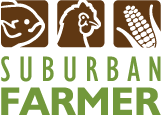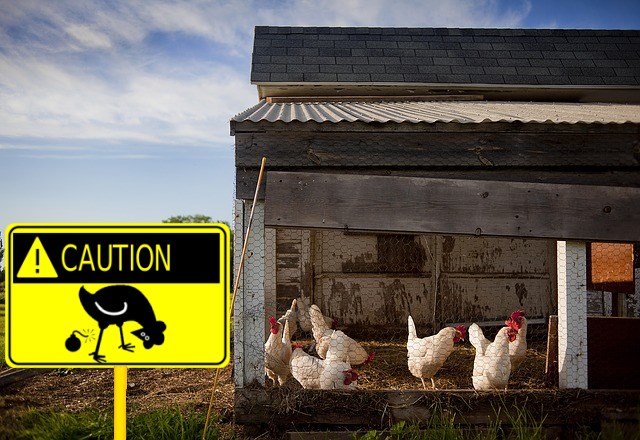Chickens in your backyard means organic eggs right? Not always. Follow this advice to remove the question mark from your chickens eggs.
One major reason people I hear people discuss and hopefully decide to have their own chickens is the perception that the chickens eggs will be organic. However in order to trust your chickens eggs are organic you would need to consider the following:
Have the soil in and around your chicken coop/run tested for traces of pesticides, insecticides, and herbicides, heavy metals etc.
What is in the soil that your chickens are pecking around in? What was past use of the land on which your house is built? What was sprayed on your land before the house was built? Are the neighbours or Government spraying POISONS?
Many toxic compounds are active for decades. We all know someone with that old gardener up the road, or perhaps used to live in your home in the past, mixing up chemical sprays in his shed 40 years ago? Even if the shed was knocked down 20 years ago, spilt RESIDUES will still reside in the soil.
ORGANOCHLORINES (pesticides) increase in strength the further it moves up the food chain. Its presence might be only be a trace in the soil but worms and bugs digest the soil and the substances accumulate. Chickens eat worms and soil and it becomes even more concentrated. In bad enough situations chickens can lay eggs which are highly contaminated and toxic. Same way with ORGANOPHOSPHATES.
WHO CAN DO THE TEST?
There are many scientific laboratories around Australia that will test soil and chicken eggs. The resulting report will tell you exactly what lies beneath the surface of your soil. Its worth mentioning that the laboratories can’t advise you on what levels are safe, they can only tell you what levels are at the time of the soil sample testing and also what levels are particularly high. Your state Department of Health and Environment will be able to give you advice and usually have data sheets online. Refer to your LOCAL/STATE DEPT OF HEALTH.
If you are deciding whether to get chickens, ideally you will test the soil before getting them. However this means that you will need only be able to test the soil and not the chickens eggs. The soil might show very low traces of toxins giving you confidence to go ahead with getting them, however in order to thoroughly test what substances make it into the egg you will need to test again with the eggs laid by your chickens.
Chicken feed
Only ‘Certified Organic’ products are grown and processed without the use of artificial synthetic chemicals, pesticides, fertilisers, hormones or GMOs. The ingredients for common feeds are sprayed with a range of chemicals during their lifetime and these substances make it into the pellets or seed that your chickens eat.
If the feed is not Certified Organic then your chickens eggs won’t be organic. It’s a HOLISTIC APPROACH. All facets of your CHICKENS MUST BE ORGANIC to produce TRULY ORGANIC EGGS.
Can I relax now?
Testing your soil and feeding your chickens a certified organic feed will remove the big question mark over the organic integrity of your chickens eggs. If you wanted to take it up a notch, here are a few ideas to strive for organic perfection:
HATCH FERTILISED EGGS
It is almost impossible to buy chicks or chickens that have been raised on certified organic starter and grower crumble. Other starter and grower crumble can contain medications in addition to the previously sprayed feed ingredients. If you look closely on the packaging of some of the common starter crumbles you may notice:
Warning: Do not feed to PULLETS or POL’S (Point of Laying).
FEED ONLY KITCHEN SCRAPS SOURCED BY A CERTIFIED ORGANIC GREEN GROCER.
Vegetables not labelled CERTIFIED ORGANIC most probably have been previously sprayed with pesticides and insecticides.
REPLACE SOIL
If you were worried about the soil in your backyard you can EXPORT the old soil and IMPORT/BUILD UP the area underneath the chicken pen and run with new soil. Source certified organic soils which are your best option.
RAS TAFARI LOVE – Ras Mark SUBURBAN FARMER

